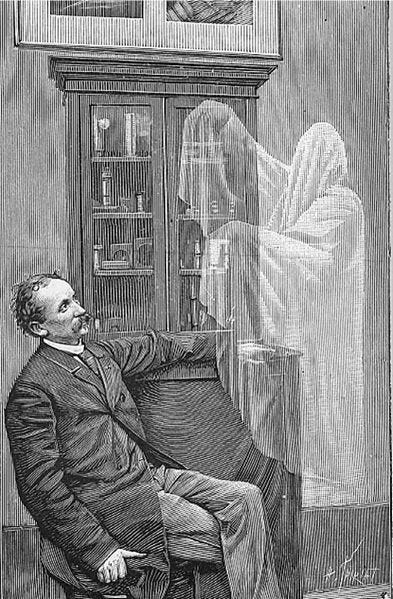Why Science Might Not Rule Out the Existence of Ghosts
Written on
Chapter 1: The Mystique of the Supernatural
October is a time filled with chills, thrills, and eerie tales. This month has roots in traditions honoring those who have passed, as well as appeasing restless spirits. While many engage in these festivities for fun, deeper questions linger: What occurs after death? Is there life beyond this realm? Do ghosts truly exist?
Globally, despite advancements in technology and our comprehension of reality, the belief in ghosts remains steadfast. While skeptics often dismiss the notion of apparitions and the afterlife, some of the loudest critics are scientists dedicated to exploring the world through a lens grounded in observable phenomena. Yet, could there be scientific explanations for these ghostly encounters?
We Lack a Full Understanding of Consciousness
One essential aspect to consider is our limited understanding of consciousness itself. A significant reason for this is our lack of investment in studying it. Some theorists propose that consciousness isn’t merely a byproduct of brain activity but rather something received, akin to a radio signal. Could it be that ghosts represent a different manifestation of this signal?
To reframe this concept: human beings are physical entities capable of thought, while we know of many physical entities devoid of thought. Is it so absurd to suggest that thoughts might exist independently of a physical body? Fundamentally, our thoughts are just information processed through electrical signals. We’ve established numerous methods for wirelessly transmitting information over vast distances. Is it truly beyond the realm of possibility for such systems to evolve naturally?
Flaws in Our Investigative Methods
Another vital point to consider is the scientific method, which relies heavily on reproducibility. We analyze cause-and-effect relationships, document the conditions surrounding them, and isolate variables to understand phenomena, allowing other scientists to replicate our findings. This methodology has proven effective in exploring the world. However, the inherent unpredictability of supernatural events complicates documentation and reproduction, making it challenging to study these occurrences systematically.
Moreover, given our limited understanding of the mind, we might be evaluating the wrong criteria to assess supernatural phenomena. Imagine attempting to understand why ice melts by only examining its color. No amount of scrutinizing its hue will clarify the melting process. Similarly, if our grasp of the underlying physics is incomplete, we might overlook key variables in our search for ghosts, leading us to incorrectly conclude they do not exist.
The Concept of "Ghostly Actions at a Distance"
Albert Einstein once referred to the enigmas of quantum mechanics as "ghostly actions at a distance." Although he was discussing a different topic, it’s a fitting analogy here. It’s conceivable that our efforts to provoke ghostly encounters could influence the outcomes we observe.
We know that observation can alter experimental results for various reasons. Just as certain variables in quantum physics are difficult to measure, our attempts to document ghostly encounters might inadvertently affect the results. If we accept the idea that ghosts are disembodied minds, it’s possible they possess a consciousness that allows them to choose whether to reveal themselves during scientific inquiries.
Skepticism is Justified
This discussion should not be taken as an endorsement of the numerous frauds prevalent in paranormal culture. Many instances involve exaggerations, misunderstandings, or outright fabrications regarding ghostly experiences. Historically, people have misinterpreted natural phenomena, including something as ordinary as magnets, as paranormal.
The underlying point is that, akin to those misunderstandings with magnets, ghosts might fit within our existing frameworks of natural laws. These paranormal occurrences may not be “supernatural” at all, but rather aspects of nature yet to be fully understood. Maintaining an open mind is crucial in this exploration.
Section 1.1: The Science of Ghosts

Chapter 2: Scientific Perspectives on Paranormal Phenomena
The first video titled "Can Science Prove Whether Ghosts Are Real or Not?" delves into the scientific inquiry surrounding the existence of ghosts, examining evidence and expert opinions on the matter.
The second video, "Ghosts Aren't Real: 4 Scientific Explanations for Paranormal Activity," presents four scientific viewpoints that aim to explain various paranormal experiences without invoking the supernatural.